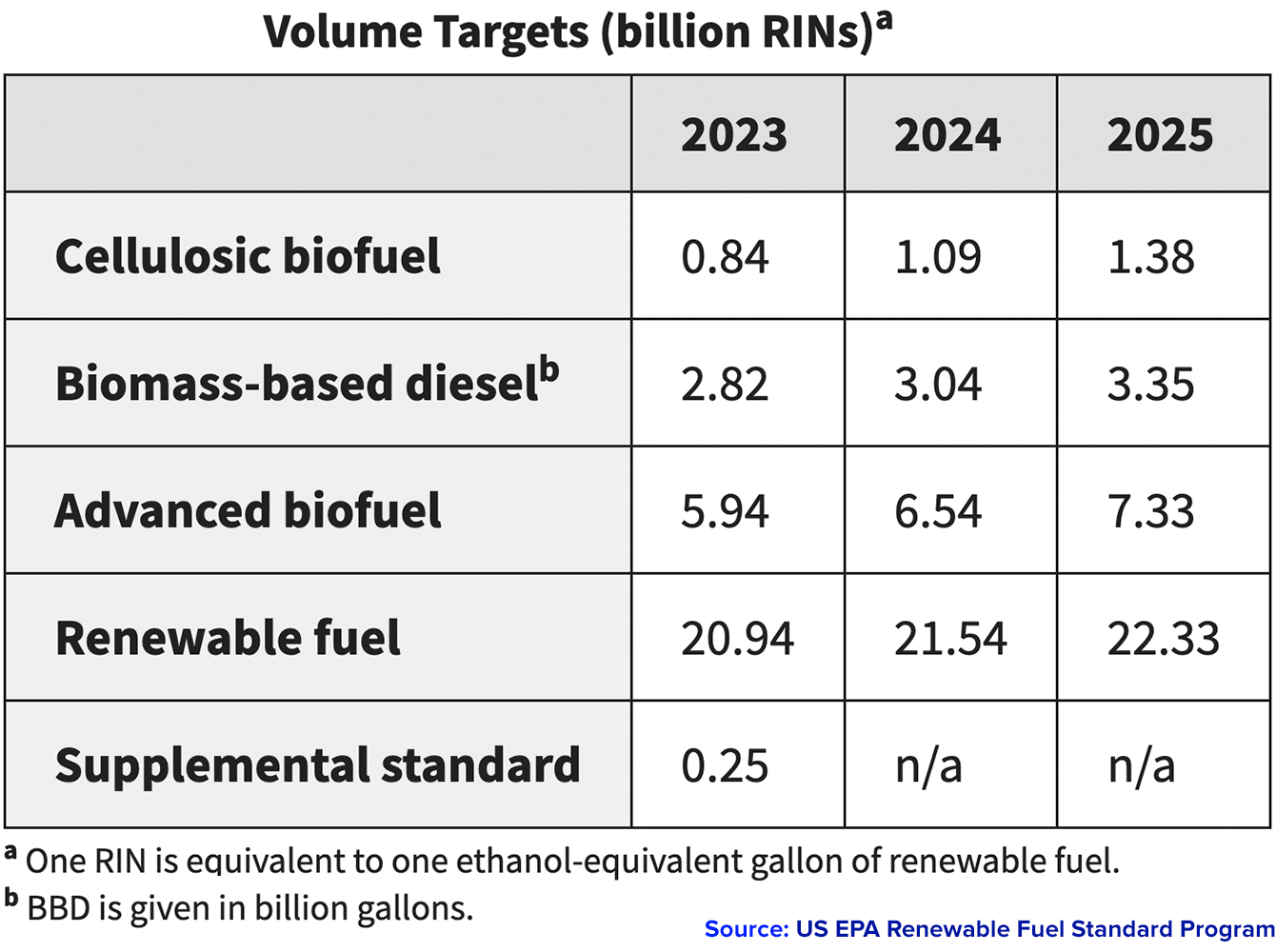RFS Program Adds Biogenic Content Testing for Biogas and RNG
The U.S. Environmental Protection Agency (EPA) passed the final version of its Renewable Fuels Standards Rule for 2023, 2024 and 2025, announcing the program’s volume targets and adopting a variety of other updates. One update included in the rule adds new testing requirements for biogas and renewable natural gas (RNG) seeking to generate renewable identification numbers (RINs) under the program.
RFS Background
The EPA’s Renewable Fuel Standard (RFS) program is the country’s national fuel standard program, started in 2005 and expanded to its current form in 2007. The program sets annual renewable volume obligations to progressively decrease the carbon intensity of the country’s fuel supply. The credits which drive the RFS are called renewable identification numbers and they are tied to tax incentives offered through the program. There were nearly 21.27 billion RINs generated in 2022, up from about 19.93 billion in 2021.
What’s New?
The largest portion of the Set rule focuses on the final volumes selected and the rationale behind them because this will create the precedent for future EPA volume setting under the RFS.

The most significant update to biogenic content requirements under the program applies to biogas and RNG. The EPA defines biogas as the precursor to RNG.
Prior to this new rule, neither biogas nor RNG were required to demonstrate their biogenic content to the program because they were explicitly excluded from the program’s list of biointermediates. By removing the exemption from this category, the Set rule applies all of the requirements of biointermediates to biogas, including three-year engineering reviews and recordkeeping requirements.
Previously, only these materials were eligible as biointermediates – Biocrude, Biodiesel distillate bottoms, Biomass-based sugars, Digestate, Free fatty acid (FFA) feedstock, Glycerin, Soapstock, or Undenatured ethanol.
Biogenic Content Testing for Biogas
Going forward, any fuels produced from biogas and RNG must submit ASTM D6866 test results to generate RINs. All three-year engineering reviews of facilities upgrading biogas to RNG will be required to provide certificates of analysis (COAs) from an independent laboratory for their biogas at the digester or landfill, their RNG prior to the addition of any non-renewable components, and their RNG after it is blended with non-renewable components. Out of consideration for a timely registration process, RNG producers will be required to submit these COAs at their engineering reviews, rather than upon registration.
The rule also specifically requires ASTM D6866 as one of the standards that “must be used when measuring biogas properties,” and includes stringent recordkeeping requirements for biogas and RNG biogenic content measurements, which must be reviewed by third-party auditors under the RFS Quality Assurance Plan. The section of the Set rule focused on new biogas and RNG testing concludes, “that this requirement is necessary to ensure that RINs are only generated from renewable biomass.”
References:
2023. “Renewable Fuel Standard (RFS) Program: Standards for 2023-2025 and Other Changes.”
2023. “Renewable Fuel Standard.” Environmental Protection Agency
2023. “Final Renewable Fuels Standards Rule for 2023, 2024, and 2025.” Environmental Protection Agency
Voegele, E. (2023, January 19). EPA: 2022 RFS RIN generation reaches 21.27 billion. Ethanol Producer Magazine

Beta Analytic is committed to provide high-quality, reliable biogenic carbon content testing to fulfill regulatory requirements. The lab is not affiliated with the US EPA or the Renewable Fuel Standard Program.
Subscribe to Beta’s newsletter to receive news of upcoming webinars and other industry updates.
This entry was posted on Wednesday, August 9th, 2023 and is filed under Biogenic Carbon Testing of Biofuels .